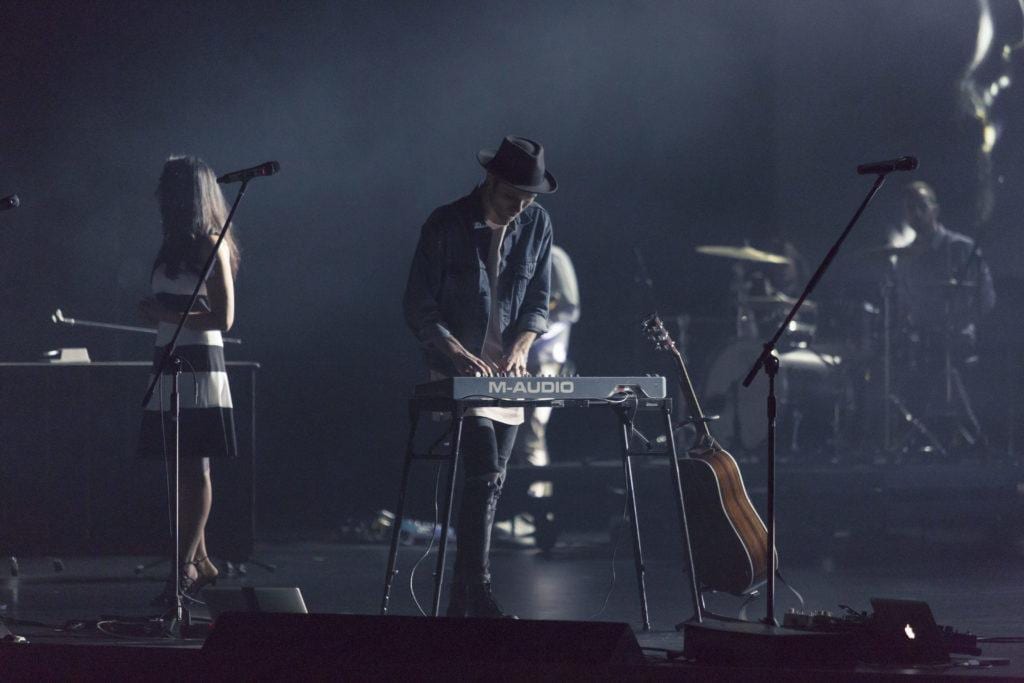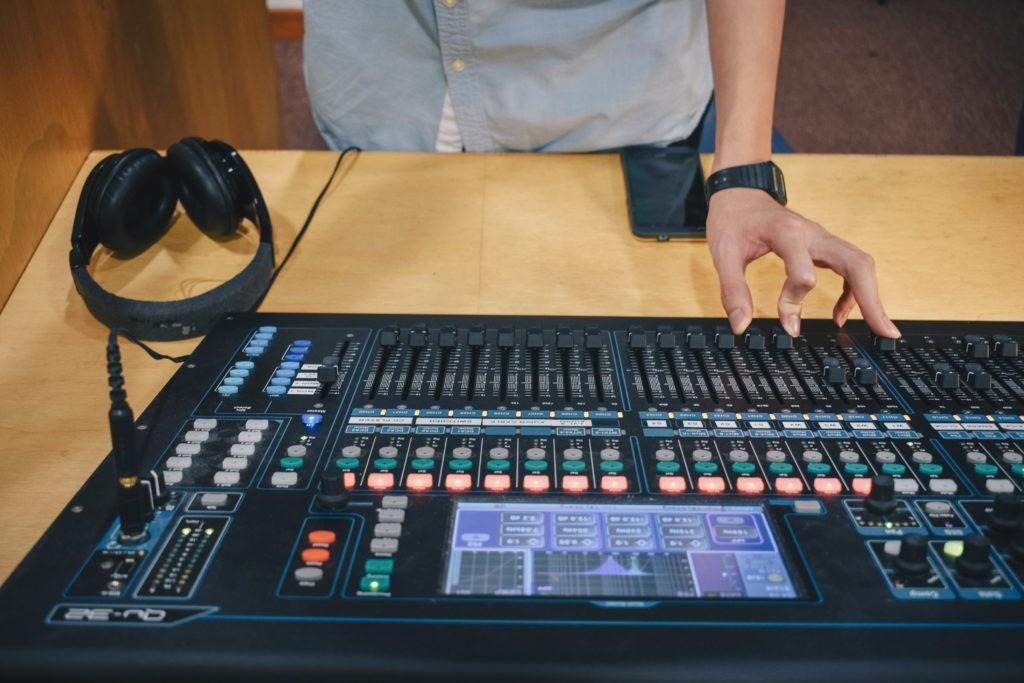How to Plan a Music Event: 5 Steps to a Successful Gig How to Plan a Music Event: 5 Steps to a Successful Gig How to Plan a Music Event: 5 Steps to a Successful Gig How to Plan a Music Event: 5 Steps to a Successful Gig
text
Music events are some of the most exciting events to be a part of. It is easy to assume that it is all “rock and roll” and happens organically, but knowing how to plan a music event is key. A lot of organization and planning is actually what drives the creativity and fun.
We’ve put together a few key steps to help you plan a music event. We’ve also included specific tips and resources you can use.
These steps aren’t particularly glamorous. But ask any music promoter: They’ll tell you that anything that saves time and speeds up the process is welcome.
1. Set your budget
There is a reason that budgeting is the first tip on this list. The money you have to spend will dictate most of the decisions you make. If you don’t set a budget, you will almost certainly overspend.
You don’t have to spend a fortune. Plenty of legendary gigs have been put on in the back room of pubs with bands that most of the audience haven’t heard of.

The important thing is to work out how much money you can afford to spend. This way, you won’t be out-of-pocket. A successful event will even end up making a profit (or at least breaking even).
The budget for every gig will vary slightly. Think about how many people you hope to get to the event. What’s a realistic price for tickets? Your budget should never exceed what you plan to make on the door. Else you’ll end up losing money.
2. Find the right venue
The venue is a huge part of the gig. It adds to the ambience. Some people religiously visit the same event venues and are fans of the space as much as the band.
Google is definitely helpful for finding venues, but there are other methods.
Websites like Venuefinder are helpful: They have already gathered important details such as disabled access and contact information. There are a lot of non-music venues there, too. Ensure the venue is suitable for concerts or you’ll will be wasting time getting in touch.
Another good method is to ‘reverse engineer’ gig listings. Have a look at similar gigs in the area. Check the venue listed. From here, you can find the relevant contacts at the venue. Bands in Town is a website where thousands of events can be searched and explored by area.
Sure, a venue needs to have all of the necessary facilities. But it also must have that little bit of atmosphere you may not require for — say — a conference. Consider not just the capacity, facilities, and location of the venue, but the reputation they have for music.
3. Sign up bands and artists
This step is interchangeable with finding a venue. You’re probably planning a music event because you already have bands and artists in mind. If not, be prepared for the difficult (but rewarding) task of finding and booking your musicians.

The scale of your music event is a big consideration here. Bands who are just starting out will probably be happy to play in pubs and clubs. The small gigs at the start of a career are a rite of passage for musicians.
Don’t spend a fortune on booking performers who are expensive if you’re starting on a small scale.
On the other hand, think about the band or bands bringing fans. At least one of the bands on your lineup should be a draw and bring along a lot of their own fans. Hiring three unknown bands for a venue with a 1,000-person capacity is a recipe for disaster.
Finding bands requires some legwork. This is especially true if you do not have any in mind.
A search on Google will yield results such as function and wedding bands. These are costly and will play cover versions of songs. It’s probably not what you have in mind for your music event.
The best method is to go to where musicians hang out, both online and offline.
Offline
Check gig listings for which bands are ‘doing the circuit’ locally. Local practice rooms and venues are a good place to find the names and genres of some bands in person. Ask around your friends, especially those who consider themselves music aficionados.
Online
Twitter, Soundcloud, and Facebook are all helpful places to search. Reverb Nation has a function which allows you to search by location. This is a lifesaver if you’re looking for local bands. Message performers to ask how to book them and check their availability.
Bands in Town is great for finding venues, but it has loads of gig listings, too. This can give you a list of bands to explore for your own event.
The unsigned guide is a music directory that’s a very detailed and useful resource for anyone working in the music industry. They have a list of over 70 booking agents and contact details for all of them. It isn’t free to access, but if you’re serious about finding rising talent, it is worth the £4.99 monthly fee.
Be sure to book bands who are in similar genres so as not to put off your punters. It is time consuming, but finding performers is fun, too.
4. Plan equipment and tech
There is every chance that you won’t have to deal with equipment and sound engineers when booking a gig, but it is best to check.
While many venues will have their own PA system and the staff to run it, make sure you ask. See if you need to hire or purchase anything additional.

You should always ask the performers for a list of any specific equipment they need (that they don’t plan to bring themselves). Establish who is setting up the equipment and who is running the mixing desk on the night. Communication is key here.
Heat on the Street have created a checklist for events to help you keep track of all production costs and considerations.
5. Consider event logistics
Logistics is quite a broad topic. If you’re the creative type, just the word itself will probably make your skin crawl.
Certain things will always have to be discussed and considered well in advance of the gig. The following list shows some of the logistical aspects you’ll need to think about to make sure everything runs smoothly. Make sure you:
- Book the venue on a date suitable for all parties including performers.
- Set up marketing channels such as event pages, invitations, and posters.
- Set a timeline for the day of the gig, including when the performers and any staff need to arrive.
- Plan security and door staff to handle on-the-day ticket sales, hand out event badges, and so on. (Ask the venue if you are expected to provide staff.)
- Follow health and safety protocol. The venue will be able to help with this, but you should alert performers, staff, and attendees. This article has some excellent tips on health and safety for events.
- Sort out your pricing and ticketing. Ticketing is made much easier by using a platform such as Billetto. You can create multiple ticket categories and set the maximum capacity so you don’t have to worry about overselling.
- Check if there are any curfew or license concerns. Set a firm time you have to finish. Create a running order. Performers may be tempted to overrun, so warn them that this isn’t possible. Tell them the PA system could be cut off.
Get the basics nailed and thrive
As you gain experience of planning a music event, you’ll see that there is a lot to consider. The above tips are a great starting point to make sure you have the basics covered.
As you approach the event, you’ll need to consider everything from marketing to riders. Stay tuned for more detailed posts on promoting and organizing music events here on the blog.




